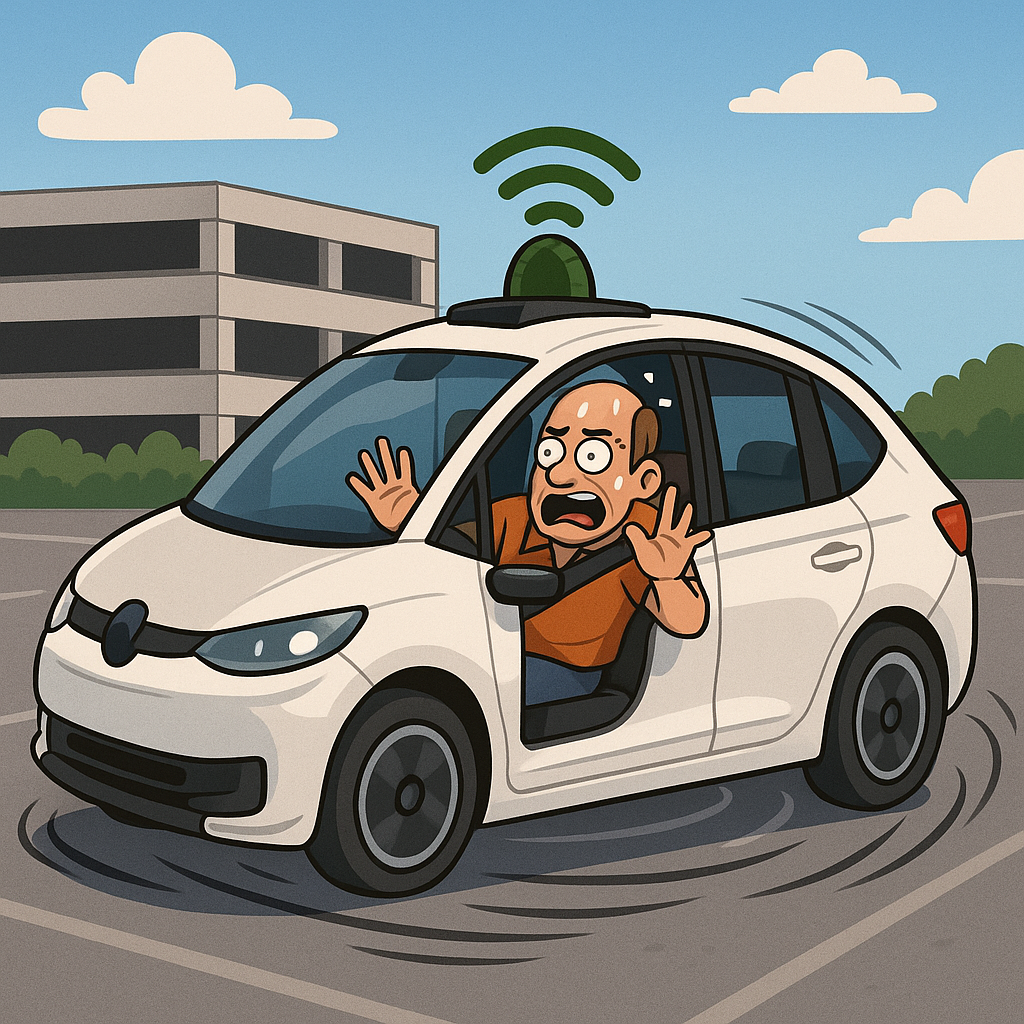Japan has warned people about a possible big earthquake soon. This is the first time they have given such a warning. They told people to be careful but said there’s no need to leave their homes right now. This warning came after a 7.1 earthquake hit near the island of Kyushu.
The Nankai Trough is a place where big earthquakes happen every 90 to 200 years. The last big one was in 1946. Experts think there is a 70% to 80% chance of another big earthquake there in the next 30 years. If it happens, it could be very dangerous, with many people hurt and big waves called tsunamis.
The warning will last for one week. People are told to stay alert and think about leaving if they can’t do it quickly later. Officials say people can keep doing their normal activities but should be ready. They should know where to go if they need to leave and have enough food and water at home.
Original news source: Japan warns of heightened risk of megaquake (BBC)
🎧 Listen:
Slow
Normal
Fast
📖 Vocabulary:
| 1 | earthquake | A sudden shaking of the ground |
| 2 | warning | A message that tells you to be careful |
| 3 | island | A piece of land surrounded by water |
| 4 | experts | People who know a lot about a subject |
| 5 | dangerous | Not safe, could cause harm |
| 6 | tsunamis | Huge ocean waves caused by an earthquake |
| 7 | alert | Paying attention to something important |
| 8 | officials | People in charge, like the government |
| 9 | activities | Things you do, like playing or working |
| 10 | quickly | In a fast way |
| 11 | enough | As much as you need |
| 12 | normal | Usual, like every day |
Group or Classroom Activities
Warm-up Activities:
– CHARADES
Instructions: Students will act out different scenarios related to earthquakes (e.g., shaking, running, hiding) without speaking while their classmates guess what they are acting out.
– OPINION POLL
Instructions: Students will walk around the classroom asking their classmates a question related to earthquakes, such as “Are you prepared for an earthquake?” They will record the answers and then share the results with the class.
– THINK-PAIR-SHARE
Instructions: Students will think individually about what they would do if a big earthquake happened. Then, they will pair up to discuss their thoughts before sharing their ideas with the whole class.
– HEADLINE CREATION
Instructions: Students will read the article and then create a catchy headline for it. They can work in small groups and present their headlines to the class, explaining why they chose them.
– VOCABULARY PICTIONARY
Instructions: Students will draw words related to the article (e.g., earthquake, tsunami, warning) on the board while their classmates guess the word. This will help reinforce vocabulary and comprehension of the topic.
🤔 Comprehension Questions:
1. What has Japan warned people about recently?
2. How often do big earthquakes happen in the Nankai Trough?
3. When was the last big earthquake in the Nankai Trough?
4. What do experts think is the chance of another big earthquake in the next 30 years?
5. What should people do during the warning period?
6. Why is it important for people to know where to go if they need to leave?
7. What should people have enough of at home during this warning?
Go to answers ⇩
🎧✍️ Listen and Fill in the Gaps:
Japan has warned people about a possible big earthquake soon. This is the (1)______ time they have given such a warning. They (2)______ people to be careful but said there’s no (3)______ to leave their homes right now. This warning came after a 7.1 earthquake hit near the island of Kyushu.
The (4)______ Trough is a place where big earthquakes happen every 90 to 200 years. The (5)______ big one was in 1946. Experts (6)______ there is a 70% to 80% chance of another big (7)______ there in the next 30 years. If it happens, it could be very dangerous, with many people hurt and big (8)______ called (9)______.
The warning will last for one week. People are told to stay alert and think about leaving if they can’t do it quickly later. Officials say people can keep doing their normal activities but should be (10)______. They should know where to go if they need to (11)______ and (12)______ enough food and water at home.
Go to answers ⇩
💬 Discussion Questions:
Students can ask a partner these questions, or discuss them as a group.
1. What is an earthquake?
2. How would you feel if there was a big earthquake near your home?
3. Do you think it is important to be prepared for an earthquake? Why or why not?
4. What do you think people should do before an earthquake happens?
5. Have you ever experienced an earthquake? What was it like?
6. Do you like learning about natural disasters? Why or why not?
7. What is a tsunami?
8. How would you feel if you had to leave your home quickly because of an earthquake?
9. Do you think people should always listen to warnings about earthquakes? Why?
10. What do you think is the best way to stay safe during an earthquake?
11. How would you feel if you saw a big wave from a tsunami?
12. Do you think schools should teach students about earthquakes? Why or why not?
Individual Activities
📖💭 Vocabulary Meanings:
Match each word to its meaning.
Words:
1. earthquake
2. warning
3. island
4. experts
5. dangerous
6. tsunamis
7. alert
8. officials
9. activities
10. quickly
11. enough
12. normal
Meanings:
(A) Paying attention to something important
(B) Things you do, like playing or working
(C) A piece of land surrounded by water
(D) In a fast way
(E) A sudden shaking of the ground
(F) People who know a lot about a subject
(G) People in charge, like the government
(H) Usual, like every day
(I) Not safe, could cause harm
(J) As much as you need
(K) A message that tells you to be careful
(L) Huge ocean waves caused by an earthquake
Go to answers ⇩
🔡 Multiple Choice Questions:
1. What has Japan warned people about?
(a) A big storm
(b) A possible big earthquake
(c) A flood
(d) A heatwave
2. When did the last big earthquake happen in the Nankai Trough?
(a) 2000
(b) 1985
(c) 1946
(d) 1995
3. How often do big earthquakes happen in the Nankai Trough?
(a) Every 50 years
(b) Every 90 to 200 years
(c) Every 10 years
(d) Every 100 years
4. What is the chance of another big earthquake in the next 30 years?
(a) 50% to 60%
(b) 30% to 40%
(c) 90% to 100%
(d) 70% to 80%
5. How long will the earthquake warning last?
(a) One week
(b) One month
(c) One day
(d) One year
6. What should people do during the warning?
(a) Stay alert
(b) Leave their homes
(c) Ignore the warning
(d) Go on vacation
7. What should people have at home during the warning?
(a) A pet
(b) A new toy
(c) Enough food and water
(d) A computer
8. Where should people know to go if they need to leave?
(a) A friend’s house
(b) The store
(c) The park
(d) A safe place
Go to answers ⇩
🕵️ True or False Questions:
1. A 7.1 earthquake recently hit near the island of Kyushu.
2. Japan has issued an alert concerning a potential significant earthquake.
3. The Nankai Trough is a location where major earthquakes occur every 90 to 200 years.
4. Experts believe there is a 70% to 80% chance of another big earthquake in the next 30 years.
5. The last big earthquake in that area was in 1946.
6. This is not the initial instance Japan has issued such a caution.
7. People are advised to be cautious and may need to evacuate their homes right now.
8. The warning will last for one week, and people should be ready to leave if needed.
Go to answers ⇩
📝 Write a Summary:
Write a summary of this news article in two sentences.
Check your writing now with the best free AI for English writing!
Writing Questions:
Answer the following questions. Write as much as you can for each answer.
Check your answers with our free English writing assistant!
1. What did Japan warn people about recently?
2. How often do big earthquakes happen in the Nankai Trough?
3. When was the last big earthquake in the Nankai Trough?
4. What should people do to be ready for a possible earthquake?
5. How long will the earthquake warning last?
✅ Answers
🤔✅ Comprehension Question Answers:
1. What has Japan warned people about recently?
Japan has warned people about a possible big earthquake soon.
2. How often do big earthquakes happen in the Nankai Trough?
Big earthquakes happen in the Nankai Trough every 90 to 200 years.
3. When was the last big earthquake in the Nankai Trough?
The last big earthquake in the Nankai Trough was in 1946.
4. What do experts think is the chance of another big earthquake in the next 30 years?
Experts think there is a 70% to 80% chance of another big earthquake in the next 30 years.
5. What should people do during the warning period?
During the warning period, people should stay alert and be ready to leave if needed.
6. Why is it important for people to know where to go if they need to leave?
It is important to know where to go so they can leave quickly and safely if there is an emergency.
7. What should people have enough of at home during this warning?
People should have enough food and water at home during this warning.
Go back to questions ⇧
🎧✍️✅ Listen and Fill in the Gaps Answers:
(1) first
(2) told
(3) need
(4) Nankai
(5) last
(6) think
(7) earthquake
(8) waves
(9) tsunamis
(10) ready
(11) leave
(12) have
Go back to questions ⇧
📖💭✅ Vocabulary Meanings Answers:
1. earthquake
Answer: (E) A sudden shaking of the ground
2. warning
Answer: (K) A message that tells you to be careful
3. island
Answer: (C) A piece of land surrounded by water
4. experts
Answer: (F) People who know a lot about a subject
5. dangerous
Answer: (I) Not safe, could cause harm
6. tsunamis
Answer: (L) Huge ocean waves caused by an earthquake
7. alert
Answer: (A) Paying attention to something important
8. officials
Answer: (G) People in charge, like the government
9. activities
Answer: (B) Things you do, like playing or working
10. quickly
Answer: (D) In a fast way
11. enough
Answer: (J) As much as you need
12. normal
Answer: (H) Usual, like every day
Go back to questions ⇧
🔡✅ Multiple Choice Answers:
1. What has Japan warned people about?
Answer: (b) A possible big earthquake
2. When did the last big earthquake happen in the Nankai Trough?
Answer: (c) 1946
3. How often do big earthquakes happen in the Nankai Trough?
Answer: (b) Every 90 to 200 years
4. What is the chance of another big earthquake in the next 30 years?
Answer: (d) 70% to 80%
5. How long will the earthquake warning last?
Answer: (a) One week
6. What should people do during the warning?
Answer: (a) Stay alert
7. What should people have at home during the warning?
Answer: (c) Enough food and water
8. Where should people know to go if they need to leave?
Answer: (d) A safe place
Go back to questions ⇧
🕵️✅ True or False Answers:
1. A 7.1 earthquake recently hit near the island of Kyushu. (Answer: True)
2. Japan has issued an alert concerning a potential significant earthquake. (Answer: False)
3. The Nankai Trough is a location where major earthquakes occur every 90 to 200 years. (Answer: False)
4. Experts believe there is a 70% to 80% chance of another big earthquake in the next 30 years. (Answer: True)
5. The last big earthquake in that area was in 1946. (Answer: True)
6. This is not the initial instance Japan has issued such a caution. (Answer: False)
7. People are advised to be cautious and may need to evacuate their homes right now. (Answer: False)
8. The warning will last for one week, and people should be ready to leave if needed. (Answer: True)
Go back to questions ⇧















